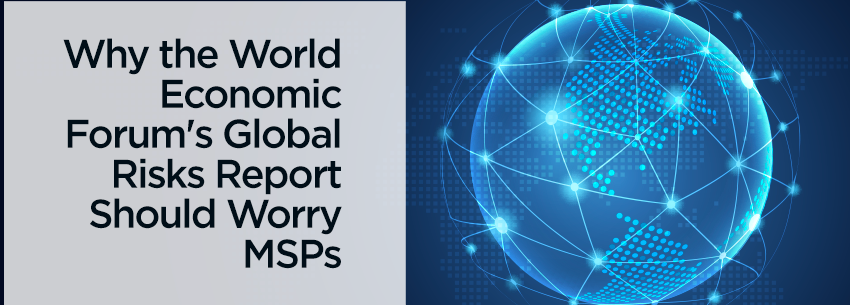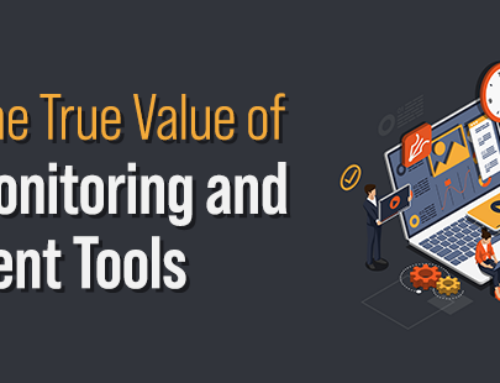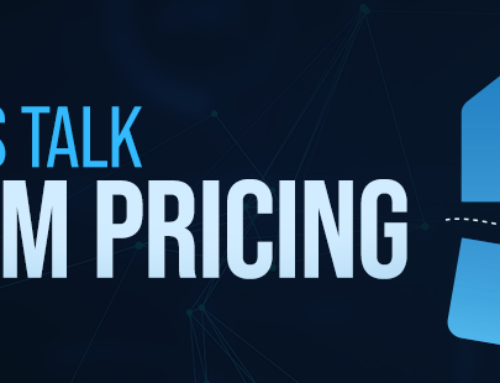Besides the COVID-19 pandemic, the world is concerned about another global risk in 2021. It’s something MSPs can assist with — combatting the issue of cybersecurity risk.
Cybersecurity breaches continue to rank high among global risks, according to the World Economic Forum’s Global Risks Report 2021. IT professionals should not be surprised that decision-makers worldwide are concerned with the growing number of cyberattacks, especially during the coronavirus crisis, as businesses globally shifted employees to remote work quickly.
This transition’s quickness certainly exposed cyber vulnerabilities in the systems and networks of businesses worldwide. More than likely, many companies didn’t consult with MSPs on the best practices of moving employees to remote work. Even businesses that did consult with IT professionals had issues initially.
Many more businesses will learn about the vulnerabilities in their network and systems over time. While IT professionals may have successfully helped these businesses transition employees to remote work amid the COVID-19 pandemic, shortcuts were often taken. Instead of taking the time to ensure protocols and standards were followed, many MSPs cut corners. In addition to these shortcomings, many of which were unintentional, MSPs will have to deal with other cybersecurity obstacles this year.
There are five main cybersecurity challenges in 2021, according to the World Economic Forum’s report:
- More complex cybersecurity challenges
- Fragmented and complex regulations
- Dependence on other parties
- Lack of cybersecurity expertise
- Difficulty tracking cybercriminals
While all the above challenges are concerning for MSPs (and their clients), one stands out from the rest — dependence on other parties.
The recent attacks against FireEye and SolarWinds, and MSPs are noted in a blog post about the report: “The recent attacks against FireEye and SolarWinds highlight the sensitivity of supply chain issues and dependence on providers of IT functionality and services. Organizations must consider what the breadth of this exposure really means and must take steps to assess the real extent of their entire attack surface and resilience to threats.”
What does this mean for MSPs?
Even though MSPs have lived under the radar for many years, businesses are now becoming more aware of what MSPs do and how they can help companies combat cybersecurity threats, which is a good thing for the IT community, as awareness has always been an issue in the past; however, the increasing number of data breaches via third parties is concerning.
The World Economic Forum’s Global Risks Report 2021 puts MSPs on notice. Decisionmakers are aware of the growing number of cybersecurity threats. They’re paying closer attention to how cybercriminals are infiltrating systems and networks.
Trust is key when it comes to managing and securing data. MSPs must be able to ensure that client networks and systems are protected adequately by best-in-class solutions. If businesses can’t trust MSPs with their data, problems will arise in the future, and MSPs won’t be part of the solution.




